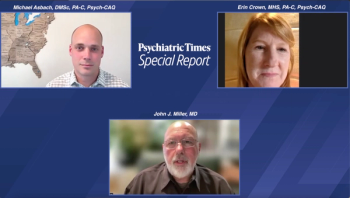
Psychological and Spiritual Reflections on the COVID-19 Pandemic
For some patients, quarantine and isolation may generate feelings of uncertainty. It is important to use accurate terminology, since the words we use and how we think shape our being and responses.
COMMENTARY
The COVID pandemic has left many of people in quarantine and/or isolated from friends, family, loved ones and, for some, ourselves. This article will provide reflections on the influence of the pandemic on various components of our psychology and faith.
On an intellectual level, it might be easy for an individual with COVID (or a similar life-threatening disorder) to understand they have a serious illness that might cause death. Yet, mandated isolation or even quarantine may be difficult to conceive, especially for those who are seemingly healthy. Quarantine can foster strong feelings dehumanization and helplessness.
The essence of feeling dehumanized is amplified if one is unable to receive proper
For many in isolation, they believe they are in quarantine. This sends a message to their body that they are dangerous and infectious. It is important, therefore, that we accurately use the terms, since the words we use and how we think shape our being and responses. Can you imagine the mind of a person that is quarantined who does not have the virus? It can be puzzling, frustrating, and add to the anxiousness and uncertainties.
Here are a few brief interactions demonstrating intense anxiety, uncertainty, and confusion.
Patient 1: I don’t want to go around people. I don’t want to infect anyone and have that on my conscience.
Patient 2: I'm staying away from people now. I don’t know who is who. I don’t want to catch anything.
Dr Winfrey: As I’m listening to you, it appears you are imagining catching more than the virus. Is that true?
Patient 2: Well, I didn’t think of it that way consciously until you pointed it out, but I guess so.
Dr Winfrey: It appears that you feel the danger of others will enter inside you and infect you whether it be COVID or not?
Patient 2: You can’t be too careful nowadays.
Theological perspective
Some patients who experience mental agony and uncertainty turn to their religious beliefs to help cope with the COVID pandemic. They may look to passages in the scripture or a faith leader for
For instance, we can look to the Genesis narrative of the Fall of Adam and Eve. In the text, Adam and Eve did not see their environment or God as a threat to their life before they ate from the Tree of Good and Evil. Indeed, they were isolated from any threat to their body and mind.
After they ate from the Tree of Good and Evil, they were “quarantined,” in other words, not allowed in the Garden of Eden until they repented and were healed spiritually, bodily, and mentally. Their behavior changed. They covered themselves with fig leaves. During that time, they were not very close to each other, and they were distant from God. After being quarantined, they continued to struggle, and so goes the essence of the story as the Fall of Man.
What does this passage reveal about one’s environment, where they live, learn, heal, work, play, and pray? What if that environment makes them feel the need to quarantine or isolate themselves from God and others? This is no longer the Garden of Eden, and one’s body is not protected, which makes our minds vulnerable. In turn, greater vulnerability to one’s body weakens one’s ability to defend ourselves from infections and other physical insults. Yet, how one frames their experience will influence how they respond. And the nature of one’s body will influence their ability to frame their experiences.
Conclusions
Bodily compromises lead to mental compromise as expressed in susceptibility to thoughts of doubt, fear, panic, and the like. The
Nonetheless, concerns about the COVID-19 virus are legitimate. We can help people understand that their mind’s processes using representations or symbols, such as those in the scripture. The virus might symbolize danger, feelings of being alien (or seeing others as aliens), among other meanings.
As we continue to live in this COVID world, it is important to ask patients, when we are using the word quarantine, from what are we quarantining? This discussion can help patients put the fears,
Dr Winfrey is in private practice in Marlton, NJ. Mr Saafir is Co-founder of The Southern Renaissance and Group 6:22.
Newsletter
Receive trusted psychiatric news, expert analysis, and clinical insights — subscribe today to support your practice and your patients.







